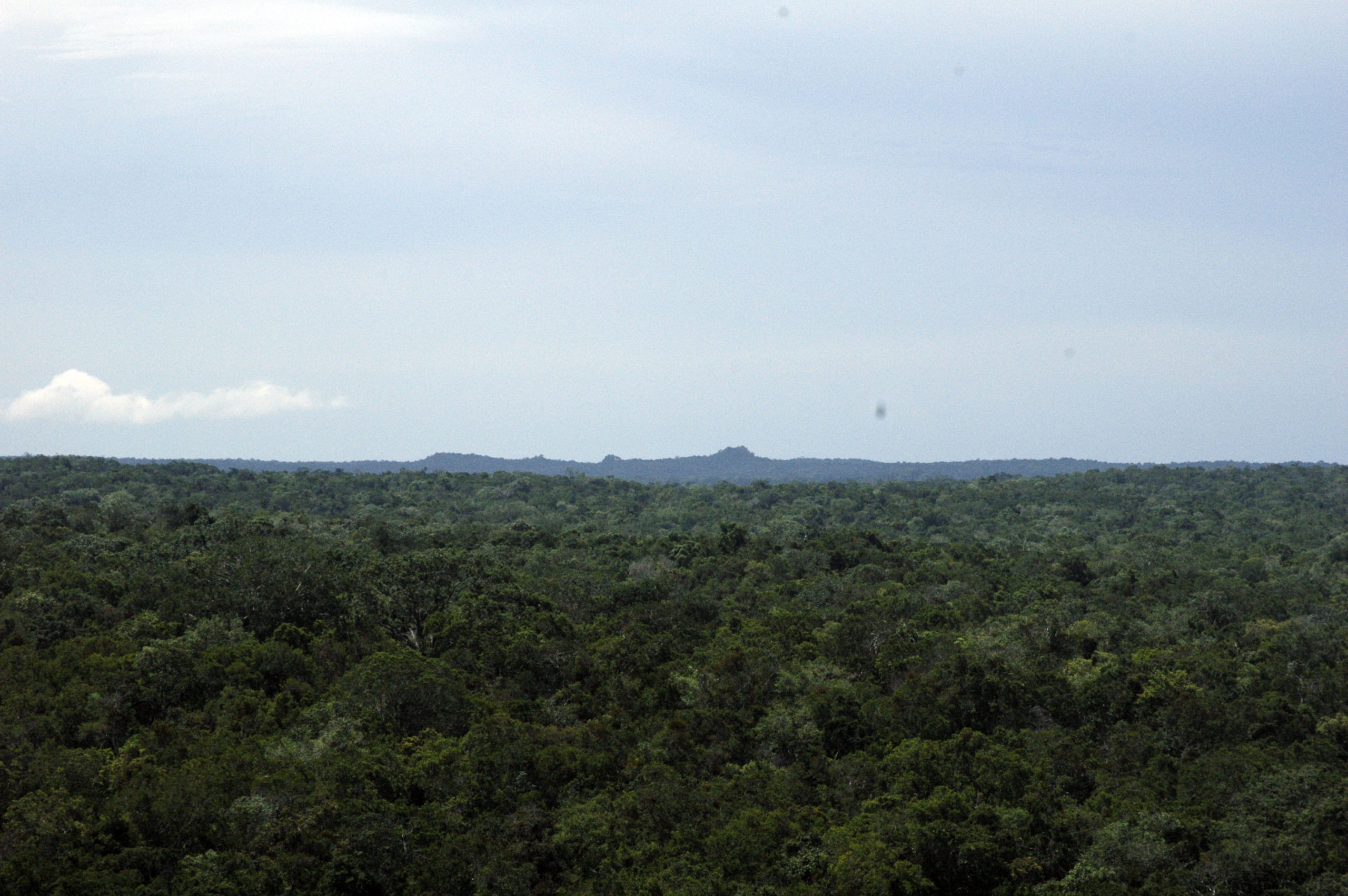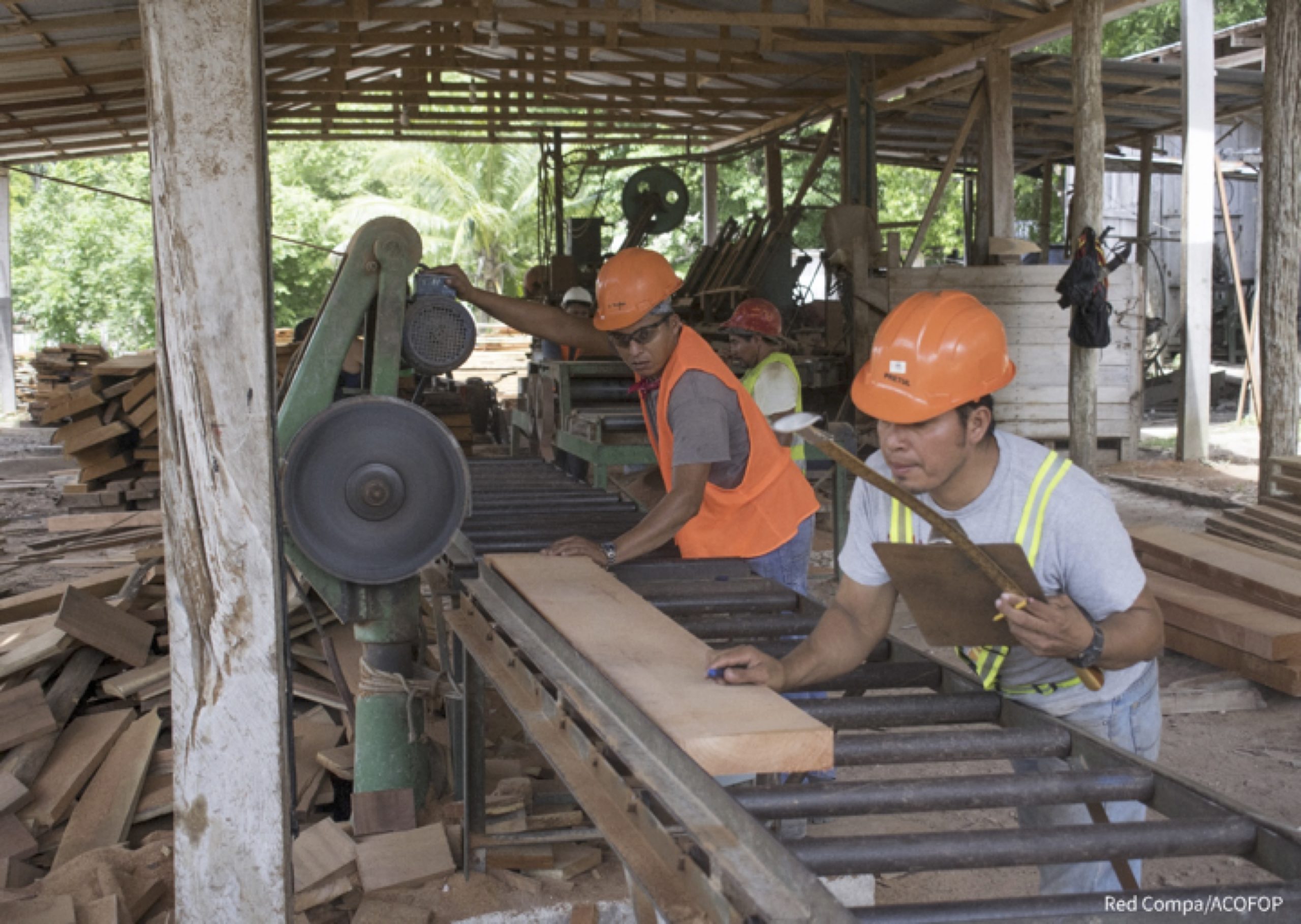Article begins
Archaeologists, whether willingly or unwittingly, have played a role in promoting colonialist structures that oppress Indigenous people in countries around the world.
Nowhere has this been more evident today than in El Petén, Guatemala, through an initiative presented to the US senate, Bill S.3131. This initiative, which I discuss here, involves the redrafting of existing conservation laws to create a tourism development program with the potential to negatively impact the livelihood of Indigenous populations, who have demonstrated to be the true guardians of the forest, of both Mexico and Guatemala.
In Guatemala, racism and injustice led to a 36-year long genocide, killing an estimated 200,000 people, the majority of them, Maya. During the Guatemalan Civil War (1960–1996), the forested wilderness of northern Peten was the setting of a contested battleground between the military and guerrilla groups, not without an impact to its conservation. In 1990, facing international pressure by conservationists, the Guatemalan government established the Maya Biosphere Reserve (MBR), covering a 21,000 square kilometer area. Communities, suddenly, found themselves illegally occupying protected lands. Farmsteads were relocated, while others groups were permitted to remain within the reserve, not without imposed restrictions on their land-use. The MBR legal framework prohibits new settlements and intensive farming, but left a quarter of the land available for sustainable extraction of hardwoods. In 1996, as part of the peace accords, Indigenous communities were granted rights to exploit hardwoods through 25-year contracts, which compelled their organization into cooperatives and to seek international certification for sustainable extraction. Communities took on the responsibility to preserve this precious resource through forest regeneration, fending off all sorts of threats. These communities have preserved 100 percent of the forest under their concession, contrasting strongly with the management of the remaining reserve, which is now invaded by displaced farmers, cattle ranchers, and drug cartels.

Image description: A dense green forest stretches out to the horizon. The sky above the horizon is light blue with a few sparse clouds.
Caption: The dense forest surrounding the Preclassic site of Nakbé which can be seen in the horizon from El Mirador’s La Danta pyramid. Francisco Estrada-Belli
The Maya Biosphere Reserve is once more under threat, as part of an initiative launched by North American archaeologist Richard Hansen, of the University of Utah, which will modify its existing limits to create El Mirador Basin Park, claiming it is the only way to protect the archaeological site. The initiative, which already reached the US Senate, has been a long term plan of his, first presented to President Alfonso Portillo in 2001, later jailed for corruption charges, who approved the decree to create the park, and which was fortunately revoked by the Supreme Court of Guatemala in 2004. Despite the support of President Alvaro Colom in 2008 and presidential candidate Manuel Baldizon in 2011, both charged for corruption, the initiative lost steam, until recently, when Senator James Inhofe (R-OK), Senator Jim Risch (R-ID), and Senator Tom Udall (D-NM) introduced Senate Bill 3131, known as the “Mirador-Calakmul Basin Maya Security and Conservation Partnership Act of 2019,” on December 19, 2019.
Proposing a law in the United States to allocate US funds to change the law in Guatemala is the epitome of neocolonialism.
Senate Bill 3131 intends to protect what has been denominated as El Mirador-Calakmul Basin from drug traffickers, cattle ranchers, and impoverished peasantry. Numerous studies, however, have found part of the MBR to be unaffected by illegal activities. Over a six-year period, Senate Bill 3131 will allocate $72 million USD in funds, without specific details of the beneficiaries. Additionally, Senate Bill 3131 will ban sustainable logging activities and instead, promote the building of tourism infrastructure, which will include a mini-train to bring visitors to various archaeological sites along with visitor centers and five-star hotels, all within the newly defined El Mirador Basin Park.
The Maya Conservation Partnership, an LLC supporting the initiative, claims the Central American Bank for Economic Integration, based in Honduras, would provide matching funds as a loan to the Guatemalan government to launch this project. Both national and international groups, including professional associations, have issued statement of opposition to this bill. Recently, the Guatemalan government stated, “it does not endorse the managing of financial proposals for projects that have not been known by the competent institutions, especially when these involve heritage of world interest, whose governance and care corresponds to Guatemala.” Moreover, Pedro Francisco Sanchez Nava, head of Mexico’s National Institute of Anthropology and History (INAH), noted that the binational initiative for the Calakmul Biosphere had not reached its Council for approval, which would require meeting research standards and federal laws. Hansen has since published several statements denying participation in the drafting of the Senate Bill 3131.
Proposing a law in the United States to allocate US funds to change the law in Guatemala is the epitome of neocolonialism. Social media discussion groups by Maya leaders and scholars denounce Hansen’s attitude as consistent with what they perceive as modern day colonialism with a racist agenda. Moreover in my opinion and that of several experts, the Senate Bill 3131 is based on unsubstantiated archaeological data, “exaggerating” the uniqueness of the site and region in that it claims El Mirador is the largest Maya city, the first Maya state, and that its causeways are the oldest, that El Mirador is the oldest Maya city, that Mirador’s Danta pyramid is the world’s largest by volume, the tallest in the Americas, or that at least 100 cities exist within the area dating to 3,000 years ago.

Image description: Two men, wearing protection gear, measure a wooden plank as part of a cooperative. Beyond them, piles of planks cut in various sizes are piled.
Caption: Community concessions in the MBR generate 5 million USD in annual revenue, supporting community member’s families and numerous local businesses. Red de Comunicadores Comunitarios/ACOFOP
The initiative by Hansen to create El Mirador Basin Park constitutes an egregious violation of the AAA ethical principles of professional responsibility, which tells those “working with living human communities” to obtain the voluntary and informed consent of research participants and their sharing of their research goals, methods, funding sources or sponsors, expected outcomes, anticipated impacts of the research, and the rights and responsibilities of research participants. Disregarding Indigenous rights and peace accords is already deeply disturbing. As a Guatemalan archaeologist, I find the fabrication of archaeological “facts” damaging to our discipline, but above all, I condemn colonialism and its new forms, contributing to the marginalization of Indigenous people.
Francisco Estrada-Belli is a research professor at the Middle American Research Institute, Tulane University.
Sandra L. López Varela is contributing editor for the Archaeology Division’s section news column.
Cite as: Estrada-Belli, Francisco. 2020. “Twenty-first Century Colonialism in Maya Archaeology.” Anthropology News website, December 23, 2020. DOI: 10.14506/AN.1559

